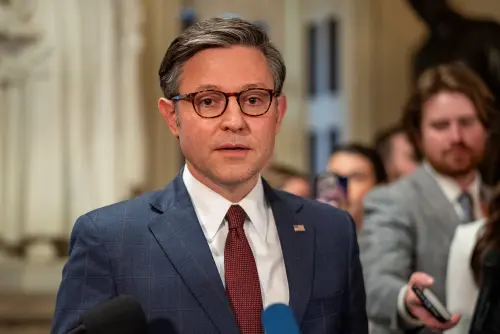Although neither US presidential candidate touched on his views regarding China and Taiwan in the first debate, a closer look at the China policy statements presented by Republican Senator John McCain and Democratic Senator Barack Obama highlights similarities as well as differences.
Both the McCain camp and the Obama camp recognize the significance of China’s rise, saying Washington needs to strengthen its bilateral cooperation with Beijing on issues such as anti-terrorism, six-party talks, climate change and energy. Both camps have called on Beijing to improve its human rights record, open markets, remove trade barriers and protect intellectual property rights. Most importantly, McCain and Obama have pledged to reinforce US security partnerships with its Asian allies.
When it comes to US policy toward Taiwan, both camps have emphasized the need to abide by the three communiques — which played a crucial role in the normalization of relations between the US and the China — and the Taiwan Relations Act. What separates McCain from Obama is the degree to which they perceive China and the approach they intend to utilize in their dealings with China.
For McCain’s team, “engaging plus hedging” would constitute an essential element of balancing China’s rise. Obama’s camp would rely more on engagement.
Obama’s Asian policy advisers have been urging him to avoid repeating US President George W. Bush’s mistake of sending wrong messages to former Taiwanese president Chen Shui-bian (陳水扁).
Some of them have compared Taiwan’s Chen with Georgian President Mikheil Saakashvili for taking advantage of US support by orchestrating a move toward independence from China in Taiwan’s case and Russia in the case of Georgia.
Because of Bush’s mixed signals to both leaders, they say, the US is risking its relations with China and Russia.
The McCain camp, on the other hand, has demanded that Beijing share more international responsibility by improving its human rights record and pace of democratization.
On the surface, it appears that a McCain administration would be friendlier to Taiwan, particularly when it comes to Taiwan’s democracy and self-defense.
However, leaders from the Chinese Nationalist Party (KMT) and the Democratic Progressive Party (DPP) should take into consideration new dynamics that will be attached to the US-China relationship after the election, no matter who becomes the next US president.
First, unlike the ongoing disputes between Washington and Beijing over issues such as Taiwan, human rights and trade, both sides have established a closer partnership in the past decade, engaging in multi-lateral and high-ranking dialogues. China’s diplomatic lobbying on Capitol Hill has put tremendous pressure on Taipei’s relations with Washington.
Moreover, the next US president will inherit a “fragile, reconstructing but uncertain” US-Taiwan relationship. For the KMT and President Ma Ying-jeou’s (馬英九) administration, the warming of relations across the Taiwan Strait following the resumption of cross-strait talks and the expansion of chartered flights and Chinese tourists visiting Taiwan has won high praise from Washington.
However, both the Obama and McCain camps have been closely watching Ma’s rollercoaster ride in terms of ebbing and flowing domestic support, his failure to gain the country economic leverage after opening to China and his lack of determination in enhancing Taiwan’s military capabilities.
How the Chinese react to Ma’s bid for observer status at the World Health Assembly (WHA) in May under his new “cross-strait diplomatic truce” strategy constitutes the major challenge to Taiwan’s rapprochement with Beijing.
What’s more intriguing is that a “cross-strait cross-fire” would likely flare up at the mid-point of the next US president’s administration. Can the US play a pivotal role in convincing China’s leaders to give concessions to Ma? Can the next US president handle a confrontation between Taipei and Beijing if China continues to slap Taiwan in the face by blocking it from joining the world heath community?
For the DPP, the fact that the Washington mainstream favors engagement with China should reinforce party leaders who want to reorient their approach toward the US.
The perception in Washington that Chen was a “troublemaker” was faulty but unfortunately a reality. Pundits in Washington saw as “provocative” moves made by Chen and the DPP government to deepen Taiwan’s democracy, to foster a stronger sense of Taiwanese identity and to promote participation in international society.
US-Taiwan relations ended on a major note of distrust in the final days of Chen’s second term. Now the DPP is in the middle of a phase of regeneration, as its new chairwoman, Tsai Ing-wen (蔡英文), has advocated recently in Washington.
It might serve as a driving force for Taiwan’s democratization from the perspective of checking and balancing the KMT government and upholding the ultimate rights of Taiwanese in deciding their future.
Still, more frank and candid communication is needed with the US. So, too, is more open-mindedness in preserving Taiwan’s democracy and sovereignty.



Commentary
Op-edObama, McCain Camps Impact on Taiwan
October 7, 2008